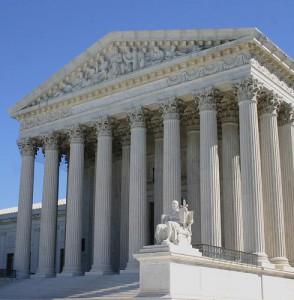I Was a Conscientious Objector: Humanists Recognize 50th Anniversary of U.S. v. Seeger

Many of us humanists deeply question the morality of war. We do so because of the high value we perceive in each human life and because of the vast and needless suffering, death, and destruction inflicted in all wars. Some of us, including myself, chose to express conscientious objection (CO) to war in a way that goes beyond the theism that earlier legal definitions of CO entailed. Fifty years ago, on March 8, 1965, the US Supreme Court expanded the definition of conscientious objection to require the recognition of its nontraditional religious and nonreligious forms.
I was a conscientious objector in the 1980s when the US, responding to conflicts in Central America, reinstituted the requirement that US males age eighteen to twenty-five register with the Selective Service System, and I appreciated the support that we COs received from many humanists, as well as from Quakers, Unitarian Universalists, Methodists, Mennonites, and others. As a young humanist and secular Jew, I particularly needed the recognition of my nonreligious form of CO. I actively encouraged other young men to refuse registration for the draft—then required by law—as part of mobilizing young and old alike against the United States’ immoral and illegal interventionism in Latin America.
I have worked for nearly four decades now to build a culture of peace, justice, and environmental stewardship to help humanity evolve beyond war because I am an advocate of nonviolent problem-solving and transformation—though not a pacifist. So I see conscientious objection as a human right, and want humanists, like some of our religious friends, to actively support COs around the world. As we celebrate the fiftieth anniversary of United States v. Daniel A. Seeger, those interested can learn more about the 1965 Supreme Court decision that struck down the requirement that a conscientious objector must affirm belief in a supreme being and must derive their conscientious claim from that belief.
According to the Center on Conscience and War, when Daniel Seeger applied for conscientious objector status, he could not affirm whether or not he believed in a supreme being. While both religious and conscientious, Seeger had to be honest about his religious views; he couldn’t say with certainty that he believed the deity to be “a supreme being.” And for that, his application to be a conscientious objector was denied. Seeger refused induction, risking up to five years in prison, because his beliefs would not allow him to participate in war or the military. He was prosecuted for his act of conscience, convicted, and sentenced to one year and one day in prison. When his conviction was overturned by an appeals court, the government appealed to the Supreme Court, which affirmed the lower court’s decision and Seeger’s conscientious objection. Thus, the “supreme being clause” was struck down, broadening the legal definition of who could qualify as a conscientious objector.
